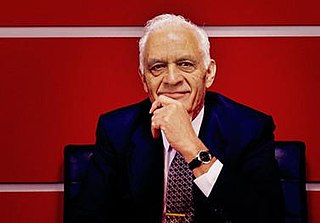A Quote by John Eldredge
Reading the Gospels, without the personality of Jesus, is like watching television with the sound turned off.
Related Quotes
I am a Jew, but I am enthralled by the luminous figure of the Nazarene. Jesus is too colossal for the pen of phrasemongers, however artful." He further added: "No man can read the gospels without feeling the actual presence of Jesus. His personality pulsates in every word. No myth is filled with such life...Theseus and other heroes of his type lack the authentic vitality of Jesus.
There is a difference. You watch television, you don't witness it. But, while watching television, if you start witnessing yourself watching television, then there are two processes going on: you are watching television, and something within you is witnessing the process of watching television. Witnessing is deeper, far deeper. It is not equivalent to watching. Watching is superficial. So remember that meditation is witnessing.
Here in the UK, we've now got an evangelical television channel - it's the kind of thing that will be very familiar to everyone in the United States, especially if you've ever turned on your TV set on a Sunday morning, and seen one holy man after another, urging you to send money so that Jesus can buy a new cadillac. Apparently, Jesus can't save the world until he's been properly kitted out with a million-dollar mansion, and a private jet - some small print in the Gospels that we must have missed.
I think the best thing a person can do is to read through the Gospels in the Bible and really look at Jesus, because if a person does this, they will realize that the Jesus they learned about in Sunday school or the Jesus they hear jokes about or the skinny, Gandhi Jesus that exists in their imaginations isn't anything like the real Jesus at all.
The church has been preoccupied with the question, 'What happens to your soul after you die?' AS IF THE REASON FOR JESUS COMING CAN BE SUMMED UP IN, 'JESUS IS TRYING TO HELP GET MORE SOULS INTO HEAVEN, AS OPPOSED TO HELL, AFTER THEY DIE.' I JUST THINK A FAIR READING OF THE GOSPELS BLOWS THAT OUT OF THE WATER. I don't think that the entire message and life of Jesus can be boiled down to that bottom line
The trouble with Christianity was that by about 150, there were hardly any Jews left in the Christian church, and so from that time until the last part of the twentieth century, the only people reading the gospels and interpreting the gospels and writing commentaries on the gospels were gentiles who were simply ignorant of the Jewish background, and I just thought they were prejudiced.
The crime of liberation theology was that it takes the Gospels seriously. That's unacceptable. The Gospels are radical pacifist material, if you take a look at them . . . Liberation theology, in Brazil particularly, brought the actual Gospel to peasants. They said, let's read what the Gospels say, and try to act on the principles they describe. That was the major crime that set off the Reagan wars of terror.



































